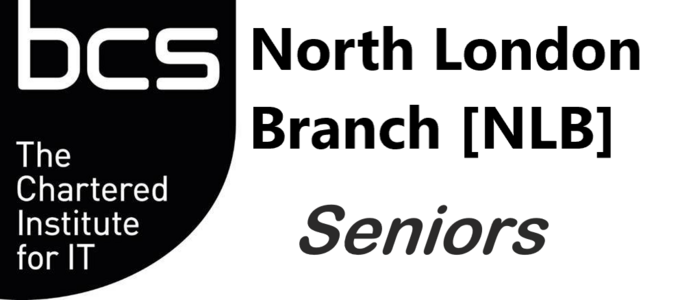‘Where digital for life and work has become the new normal, it isn’t OK to leave millions of people behind.’ Helen Milner CEO The Good Things Foundation
According to Lloyds Consumer Digital Index 2020, 9 million adults in the UK can’t use the internet without help.
Digital Inclusion is about more than ‘skills’ – it is pretty unusual to find someone in London with no experience using digital technology… digital inclusion is about using ICT (Internet Computer Technology)when you want, for what you want, logging off when you want, when you can create your own online world and networks.
Digital tools are just tools – there is a drive and assumption that the only benefits of getting people online are getting them into work… The benefits of digital inclusion are far beyond the world of work. They now include the global civilisation including seniors.
Advertise people’s rights and ways to IRL (in real life) alternatives – public services have a duty to provide services and make ‘reasonable adjustments’.
Burying a phone number, complaints procedure or office opening hours deep in a website is bad for business, and for public sector providers, breaches their statutory duties.
When someone comes in or calls, they should not be directed to a website
We don’t know all the answers https://www.digitalhealth.net/2020/12/digital-inequalities-are-everyones-problem-but-we-dont-know-all-the-answers/
“We recognise the importance of people being connected and that’s why we’ve already taken action to broker a major deal with the mobile and broadband companies to provide essential support for vulnerable consumers who may be affected by coronavirus,” said a spokesperson for the department of digital, culture, media and sport.
Yet anti-poverty groups such as the Aple Collective, a network of people who have experienced poverty, say not enough is being done. “We welcome the positive and compassionate moves being made by government and the telecommunications industry to seek to buffer the effects of Covid-19 on those on low incomes”, they said in a statement.
“However, what is little mentioned so far are the voices and responses from those who are completely excluded from the digital world.”
Following report by Misha Nayak-Oliver. 2021
Campaigns and Advocacy Lead for the charity, Just Fair. Just fair is a Human Rights Group
Individual users need greater protection. They must have redress against large
platforms through an ombudsman tasked with safeguarding the rights of
citizens.
Transparency of online platforms is essential if democracy is to flourish.
Platforms like Facebook and Google seek to hide behind ‘black box’ algorithms
which choose what content users are shown. They take the position that their
decisions are not responsible for harms that may result from online activity.
This is plain wrong. The decisions platforms make in designing and training
these algorithmic systems shape the conversations that happen online. For this
reason, we recommend that platforms be mandated to conduct audits to show
how in creating these algorithms they have ensured, for example, that they are
not discriminating against certain groups.
Regulators must have the powers to oversee these decisions, with the right to acquire the information from platforms they need to exercise those powers.
Platforms’ decisions about what content they remove or stop promoting through
their algorithms set the de facto limits of free expression online. As it currently
stands the rules behind these decisions are poorly defined. Their practical
operation should reflect what the public needs. In order to protect free and open
debate online, platforms should be obliged to publish their content decisions
making clear what the actual rules of online debate are.
Alongside establishing rules in the online world, we must also empower citizens,
young and old, to take part as critical users of information. We need to create a
programme of lifelong education that will equip people with the skills they need
to be active citizens. People need to be taught from a very young age about the
ways in which platforms shape their online experience.
The public needs to have access to high quality public interest journalism to
help inform them about current events. This requires fair funding to support
such journalism.
Platforms must also be forced to ensure that their services empower users to
exercise their rights online. The public need to understand how their data is
being used. We propose that this obligation of fairness by design should be a
core element in ensuring platforms meet their duty of care to their users.
Parliament and government at all levels need to invest in technology to engage
better with the public.
Electoral law must be completely updated for an online age. There have been no
major changes to electoral law since the invention of social media and the rise
of online political advertising. As the Law Commission recently pointed out, a
wholesale revision of the relevant law is now needed. This should include rules
that set standards for online imprints on political advertisements so that people
can see who they come from and advert libraries that enable researchers and the
public to see what campaigns are saying. The Electoral Commission needs the
powers to obtain the information necessary to understand when individuals are
breaking the rules and to be able to set fines that act as a real deterrent against
flagrant breaches. We also need to ensure that there is greater clarity around the
use of personal data in political campaigns; the Information Commissioner’s
guidance should be put on statutory footing.
We take the Nolan Principles of Public Life as our guide in this Report, and as
the standard to which individuals in public life should be held. In turn, platforms
and political parties should aspire to the same high standards.
We believe this Report sets out a way whereby digital technology is no longer in
danger of undermining democracy but rather where the wonders of technology
can support democracy and restore public trust.
